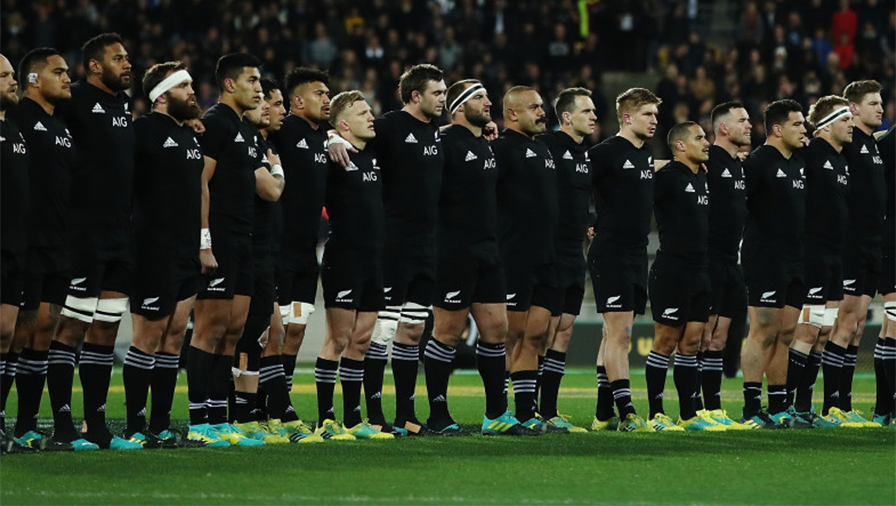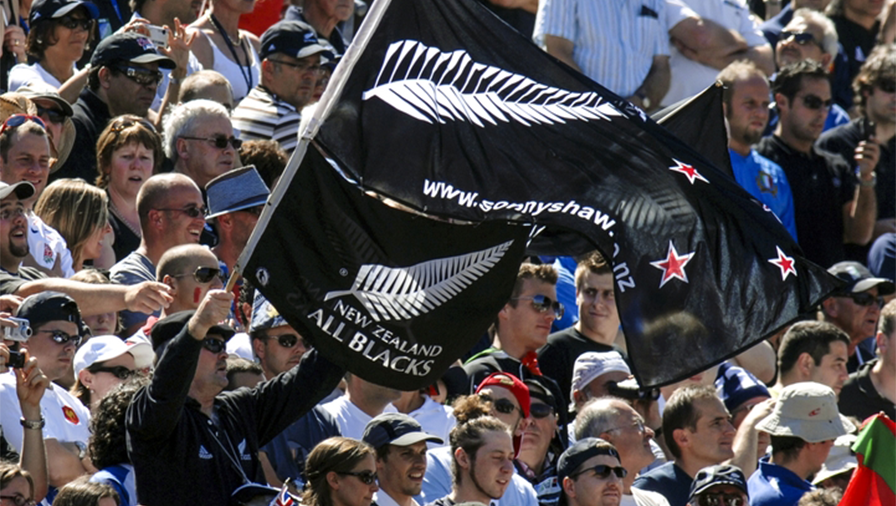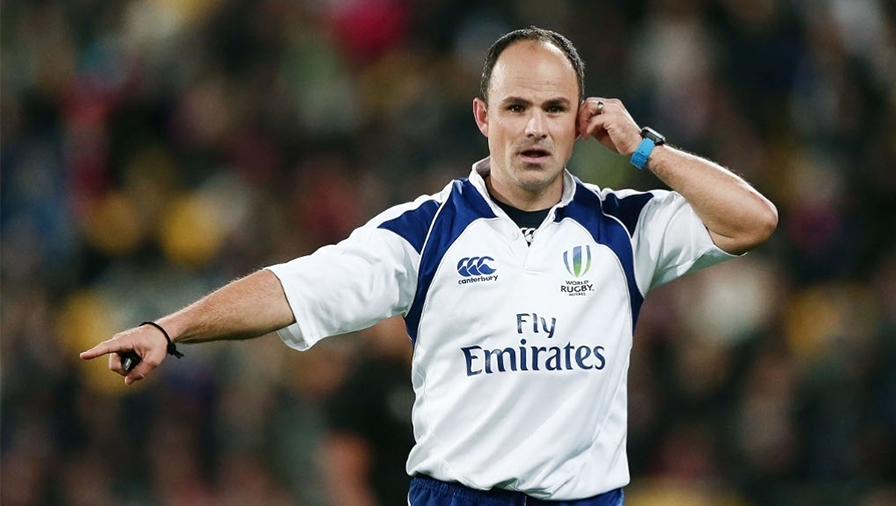Football’s failed Super League has lessons for NZ Rugby
The fate of PE investment in NZ Rugby will be decided this Thursday.
The fate of PE investment in NZ Rugby will be decided this Thursday.
A penny for the thoughts over the dramatic crash and burn of European football’s Super League among the divided powerbrokers contemplating the future of New Zealand Rugby.
The fate of Silver Lake’s ballyhooed offer to buy a 12.5% share of NZR’s commercial rights – read the All Blacks – will be decided this Thursday at the most intriguing AGM in decades of the national body charged with running the game in this country.
Or will it?
Enough has leaked from the discussions – and six days of what seems to have been fruitless mediation after it became apparent the players are at odds with the ‘fish-heads’ (a derogatory term players use for officials) – that a continued stalemate and more confusion might be the more likely result.
As we all wait to see if white smoke will emerge from NZR’s Wellington bunker signalling a decision, those involved may want to ponder the lessons emerging from the smoking wreck that was European club football’s proposed Super League.
The overwhelming “winners” in last week’s remarkable three-day stoush which saw Europe’s biggest clubs and their covert plans shot from the sky were the players and fans.
There are, of course, significant differences between the creation of a rebel football league of tone-deaf clubs and disconnected ‘haves’ than a US private equity fund buying into our national game with a $387.5 million* injection of funds that NZR seems increasingly desperate to secure.
For starters, the argument that the equity horse has already bolted in meaningful professional sport is credible. Silver Lake has already secured successful stakes and improved sporting organisations as diverse as Manchester City FC, ironically one of the Super League architects, as well as the Ultimate Fighter Championship (UFC).

A Silver Lake rival, CVC Capital, has been busy snapping up stakes in rugby properties around the globe including Europe’s Six Nations, the English club premiership and the Pro14 comp featuring Italian, Welsh, Irish and now South African clubs.
CVC is the poster boy of equity investment on the back of its success with F1 motor racing. This has, not unsurprisingly, fuelled the pro-Silver Lake faction who believe New Zealand rugby simply can’t afford to look a gift horse in the mouth.
This certainly seems to be the case of the 26 provincial unions who are expected to vote in favour of the proposal on Thursday. A cynic might suggest their administrators, having lived hand-to-mouth for decades now, have been paid off with a good slice of the immediate Silver Lake money initially being channelled into provincial coffers.
But Silver Lake has encountered unexpected and robust opposition from the NZ Rugby Players Association, led by its long-time chief executive Rob Nichol and chair David Kirk – a man who understands the All Blacks, rugby fans and the upside and downside of capital markets more than most (NZR needs the players association to sign off on the deal as part of the agreed collective bargaining agreement).

Super league lessons
But let’s go back to the Super League again for a moment.
European soccer is not the first to seize on that moniker to inspire a vision of utopia. Many Kiwi sports fans will remember rugby league’s version of ‘Super League’, revealed in Australia on April Fool’s Day 26 years ago (disclaimer: the author backed and was involved with the concept and regrets it to this day).
A quarter of a century later, and rugby league is only now just recovering from the ensuing carnage over a fight that started over Australian pay-TV rights and quickly slipped into avarice and greed on all sides. The European Super League proponents are fortunate their stoush lasted just three days.
There are no villains in the current debate. NZ Rugby undeniably faces an uncertain financial future and senior administrators should be applauded that they are looking for solutions rather than sleeping at the wheel. They are being responsible in listening to Silver Lake.
But so also are the players association, who are acting equally responsibly in holding NZR to account over potential alternatives – including debt servicing and borrowing funds to hire external expertise – and a downside that could be crippling to rugby’s future in this country.
Unlike European football where fans immediately and viciously turned on the Super League clubs with the support of players and coaches, the subtleties of private equity deals are lost on the bulk of Kiwi rugby supporters, hence their relative silence on the offer’s merits or otherwise.
But that will all change if the deal goes through and the darker warnings of the players association and others are borne out.

They include the All Blacks playing 99% of their matches overseas, over-worked players with shorter careers and cultural misappropriation that alienates New Zealanders (think of how an American influence on the haka might play out).
Private equity can undoubtedly add to the coffers of the game in this country through their expertise. The emergence of digital NFTs (non-fungible tokens … don’t ask, it’s a whole other story but it’s basically a cryptocurrency play), high-profile overseas tests and superior revenue-sharing agreements with other national unions are all strong ideas.
But the players association’s view is this can be secured by NZR hiring overseas experts rather than selling out to private equity partners who potentially “don’t get rugby” and to an industry that is undeniably about ultimately selling out with a huge cash windfall.
They urge caution and are right to do so given the events of European soccer and others.
Questions to ponder
What happens if Silver Lake decide the All Blacks need to play the US on Christmas Day in New York and Japan in Tokyo on New Year’s Day and a new $100m jersey sponsorship deal is contingent on NZR agreeing?
These are the very real scenarios NZR faces. Another concern is what if rugby turns out to be a unique sport that can’t actually convert the private equity defence-splitting pass into a seven-pointer under the posts? Is it really a sport like cricket or football, capable of exciting fresh new international audiences and wowing teenagers?
Unlike those sports, the physical toll it extracts limits how often players can perform weekly at their best. And let’s not even start on the game’s befuddling rules and out-sized influence of referees.

Or what if private equity decides it’s all too hard (a penny also for the thoughts of Silver Lake on whether the tortuous saga of simply deciding on the deal is an indicator of a frustrating future decision-making process)?
There are also worrying elements suggesting delusions of grandeur. Talk of Silver Lake assisting NZR to create a stand-alone All Blacks OTT international streaming service, quite frankly, fits into that category.
The European Super League was conceived by a curious mix of hedge fund operators, European industrial titans, Russian oligarchs and Gulf royals. At the heart of it was a selfish desire to make more money, accumulate more power and create a streaming platform that would extract even more dollars from the poor saps who ultimately end up funding such folly – the fans.
NZR needs the support of the players to make the Silver Lake deal work. But equally they will need to keep supporters onside.
As D-Day approaches, maybe they need an extra seat at their AGM for King Solomon.
*Silver Lake’s original offer was for $465 million for 15% of NZR’s commercial rights but this was revised downward after it valued those rights at $3.1 billion.
Trevor McKewen is a former NZR senior executive.